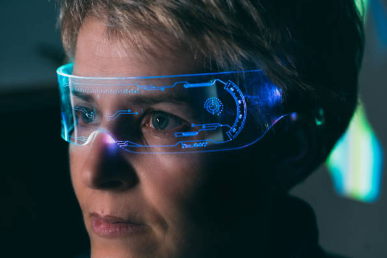Introduction
In a groundbreaking development for dementia care, a new line of AI-powered smart glasses has been launched, designed specifically to assist individuals suffering from dementia. This innovative technology aims to enhance the quality of life for patients and provide invaluable support for caregivers by leveraging artificial intelligence to address some of the most challenging aspects of dementia.
The Need for Innovative Solutions
1. The Growing Challenge of Dementia
Dementia affects millions of people worldwide, presenting unique challenges not only for those diagnosed but also for their families and caregivers. As the population ages, the prevalence of dementia is expected to rise, making the need for effective solutions increasingly urgent. Patients often struggle with memory loss, confusion, and difficulties with daily tasks, necessitating innovative approaches to care.
2. Technology’s Role in Care
Recent advancements in technology, particularly in artificial intelligence, offer new possibilities for improving patient outcomes. Smart devices can assist with daily reminders, navigation, and communication, potentially easing the burden on both patients and their caregivers.
Features of the Smart Glasses
1. Real-Time Assistance
The newly launched smart glasses are equipped with AI technology that provides real-time assistance to dementia patients. Features include facial recognition to help patients identify loved ones, as well as prompts for daily activities and reminders about medication. This functionality aims to foster a sense of familiarity and autonomy for users, helping them navigate their environment more confidently.
2. User-Friendly Interface
Designed with ease of use in mind, the glasses offer a simple interface that can be operated with minimal training. Caregivers can customize the settings to tailor the experience to each patient’s specific needs, ensuring that the technology serves as an effective aid.
3. Data Collection and Insights
In addition to providing assistance, the smart glasses collect data on the user’s behavior and interactions. This information can be invaluable for caregivers and healthcare professionals, offering insights into the patient’s condition and helping to inform care strategies.
Impact on Dementia Care
1. Enhancing Independence
By empowering dementia patients with tools that support their daily activities, the smart glasses can enhance their sense of independence. Patients may feel more capable of managing their routines, which can positively impact their mental well-being.
2. Supporting Caregivers
The glasses also serve as a valuable resource for caregivers, who often face significant challenges in managing the care of loved ones with dementia. With real-time support and data-driven insights, caregivers can better understand their patients’ needs and respond more effectively.
3. Potential for Broader Applications
While the primary focus is on dementia care, the technology behind these smart glasses has potential applications for other cognitive impairments and conditions. This opens the door for future innovations that could address a wider range of health challenges.
Conclusion
The launch of AI-powered smart glasses represents a significant advancement in the care of dementia patients, addressing the complex challenges posed by this condition. By enhancing independence and providing support for caregivers, this technology has the potential to transform the landscape of dementia care. As innovations like these continue to emerge, they offer hope for improved quality of life for those affected by dementia and their families.



